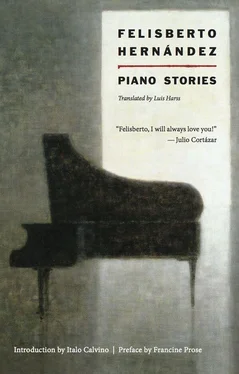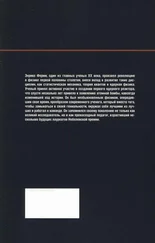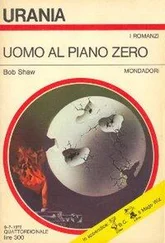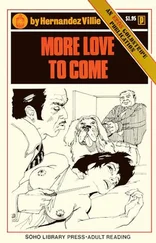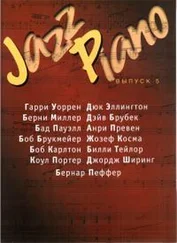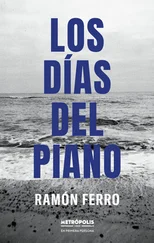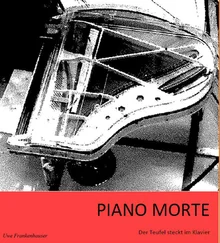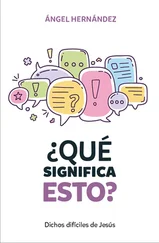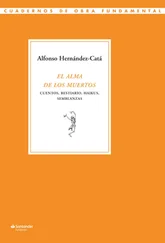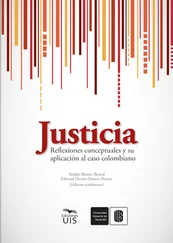Felisberto Hernandez - Piano Stories
Здесь есть возможность читать онлайн «Felisberto Hernandez - Piano Stories» весь текст электронной книги совершенно бесплатно (целиком полную версию без сокращений). В некоторых случаях можно слушать аудио, скачать через торрент в формате fb2 и присутствует краткое содержание. Год выпуска: 2014, Издательство: New Directions, Жанр: Современная проза, на английском языке. Описание произведения, (предисловие) а так же отзывы посетителей доступны на портале библиотеки ЛибКат.
- Название:Piano Stories
- Автор:
- Издательство:New Directions
- Жанр:
- Год:2014
- ISBN:нет данных
- Рейтинг книги:4 / 5. Голосов: 1
-
Избранное:Добавить в избранное
- Отзывы:
-
Ваша оценка:
- 80
- 1
- 2
- 3
- 4
- 5
Piano Stories: краткое содержание, описание и аннотация
Предлагаем к чтению аннотацию, описание, краткое содержание или предисловие (зависит от того, что написал сам автор книги «Piano Stories»). Если вы не нашли необходимую информацию о книге — напишите в комментариях, мы постараемся отыскать её.
Piano Stories
Piano Stories — читать онлайн бесплатно полную книгу (весь текст) целиком
Ниже представлен текст книги, разбитый по страницам. Система сохранения места последней прочитанной страницы, позволяет с удобством читать онлайн бесплатно книгу «Piano Stories», без необходимости каждый раз заново искать на чём Вы остановились. Поставьте закладку, и сможете в любой момент перейти на страницу, на которой закончили чтение.
Интервал:
Закладка:
One such night I was plodding up a dirt road, stepping on the spots made by the shadows of the trees. The moon followed me on one side, my shadow dragged after me on the other. As I kicked up clods of earth, my shadow blotted out my crumbling tracks and was, in turn, swallowed up in the long shadows of the trees slowly stretching past me.
My tired flesh weighed on me and my fetlocks hurt. Sometimes I forgot to coordinate my front and hind quarters and I stumbled and almost fell.
Suddenly I would smell water — but it was just some stagnant pond nearby. My eyes, too, were ponds reflecting all sorts of things, big and small, near and far, on their sloped surfaces brightened with tears. I had nothing to do but watch for unfriendly shadows and threatening animals or humans. If I lowered my muzzle to nibble on a shoot of grass under a tree, then I also had to be careful to avoid prickly weeds, and when thorns stuck in my lips I had to work them loose.
In the early hours of the night, even when I was hungry, I never stopped. In the horse I’d found something very much like what I’d left behind in the man: a lazy well-being conducive to pleasant memories. I’d also realized that to get the memories going I had to wind them up, and the way to do that was by walking around. In those days I worked for a baker. I owed him what hopes for happiness I still had. He would put a sack over my eyes and yoke me to a pole that turned a sort of millstone, except that he used it for kneading; and, linked to this machine, circling without a stumble for hours on end with the pole, which was like a minute hand, listening to my steps and the sound of the gears, I would go over my memories.
We worked until late at night, and then he fed me, and grinding the corn between my teeth I let my mind run on.
(Right now, as a horse, I’m reminded of something that happened to me a short time ago, while I was still a man. One night I couldn’t sleep because I was hungry. I remembered I had a packet of mints in the closet and started to eat them. But when I chewed on them it sounded like I was grinding corn.)
And now, suddenly, reality has brought me back to my sense of being a horse, my steps ringing out in the deep as I clomp over a long wooden bridge.
Along many different roads I’ve always had the same memories. Night and day they run through my mind like rivers through a land. Sometimes I watch them go by and other times they overflow.
As a young colt I hated the farm boy who looked after me. He was also a young colt. Once, after sundown, the little wretch whacked me across the nose, so hard that my blood boiled and I went wild and not only stood on my hands and threw him but bit his head and mangled his thigh. Then someone must have seen my mane fly as I wheeled around and finished him off with a couple of well-placed kicks.
The next day a lot of people left the wake to watch me receive my punishment from the men who were avenging the boy’s death. They killed the colt in me, reducing me to a horse.
Soon after that I spent a very long night. I’d kept some of my “vices” from my early life and now I revived one of them: I jumped over a fence, onto the road. I’d barely managed to clear the fence and I was hurt.
From then on I felt free. But it was an unhappy freedom. Not only did my body weigh me down, but each of its parts wanted to live an independent life, without putting out any effort: they were like slaves fighting their owner by dragging their feet. When I was lying down and wanted to get up, I had to convince each separate part to cooperate, and at the last moment there were always unexpected groans and complaints. Hunger had a way of getting them to act together, but the strongest prod was the fear of being caught. When a mean owner beat one of the parts, they all joined forces to save the affected part from further damage — because none felt safe. I tried to pick owners with low fences and at the first beating I was off, and the hunger and the fear of being caught began again.
Once my owner was just too cruel. At first he used to beat me only when he was riding me and we went by his girlfriend’s house, but then he started to place the load too far back in his cart, making me rear up so I couldn’t get a foothold to press forward, and he flew into a rage and beat me on the head, legs, and belly. I ran off one evening and didn’t stop for miles, until I could hide in the dark. I came to a shack near the edge of a village. A small fire was smoking inside and, hunched over it in the unsteady glow, I saw a man with his hat on. By then it was night out. But I had to keep going.
As soon as I was on my way again I felt lighter, as if some parts of my body had fallen behind or strayed in the night, and I tried to hasten my step.
In the distance I saw some trees with lights glinting through the leaves. Suddenly I realized there was a brightness at the end of the road. I was hungry but decided not to eat until I reached the brightness: it was probably a town. I drew the road in more and more slowly; it seemed I’d never reach the brightness at the far end. But gradually I realized none of my parts had deserted me: one by one they started to catch up, each hungrier and more tired than the one before. The first to arrive — and the hardest to trick — had been the parts in pain. I kept showing them the memory of the owner unsaddling them, his short flat shadow slowly circling my body. It was this man I should have killed as a colt, when I was still a single self, driven by the pain and anger that held me together.
I started to chew on a patch of grass near the first houses. I was easy to detect because of my large white and black spots, but it was late night now and no one was up. I kept snorting and raising dust — I couldn’t see it but it got in my eyes. I reached a street with a hard surface and came to a wide gate. As soon as I went through the gate I saw pale spots moving in the dark. They were schoolchildren in their white smocks. They shooed me off and I went up a short flight of steps. Other children at the top of the stairs drove me on. My hooves clattered over a wooden floor and suddenly I came out in a small lit space facing an audience. There was an explosion of shrieks and laughter. The girls in long dresses who were in the small lit space scattered in every direction, and from the deafening audience, which was also full of children, voices rang out, “A horse!. . A horse!” A boy with folds in his ears, as if he had forced a hat down on them, was shouting, “It’s the Mendezes’ pinto!” Finally the teacher came out on stage. She was also laughing, but asked for silence, saying the play was almost over and explaining how it ended. But she was interrupted when I sank down wearily on the rug and the audience burst into applause again and surged toward us. The rest of the performance was canceled. People climbed up on stage. A little girl, about three years old, broke from her mother, rushed up to me and put her open hand, like a tiny star, on my sweaty rump. When the mother dragged her away she was holding up her little open hand and saying: “Mommy, the horse is wet.” Meanwhile, a gentleman with a knowing look was pointing his forefinger at the teacher, as if he were about to ring a bell, and insisting, “I can’t believe you hadn’t planned this surprise — but the horse came in ahead of time. Horses are very hard to train. Let me tell you about one I used to have. .” And the boy with folds in his ears raised my upper lip, looked at my teeth, and said, “This horse is old.”
The teacher was allowing the audience to think she really had planned the surprise. A childhood friend came up to congratulate her. The friend began to recall a quarrel they’d had when they were in school together, whereupon the teacher remembered what the friend had said to her during the quarrel — that she looked like a horse. To my surprise, it was true: the teacher looked like me. I still thought she might have shown more respect for a poor dumb beast than to bring this up in my presence.
Читать дальшеИнтервал:
Закладка:
Похожие книги на «Piano Stories»
Представляем Вашему вниманию похожие книги на «Piano Stories» списком для выбора. Мы отобрали схожую по названию и смыслу литературу в надежде предоставить читателям больше вариантов отыскать новые, интересные, ещё непрочитанные произведения.
Обсуждение, отзывы о книге «Piano Stories» и просто собственные мнения читателей. Оставьте ваши комментарии, напишите, что Вы думаете о произведении, его смысле или главных героях. Укажите что конкретно понравилось, а что нет, и почему Вы так считаете.
